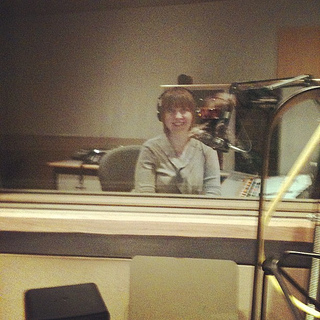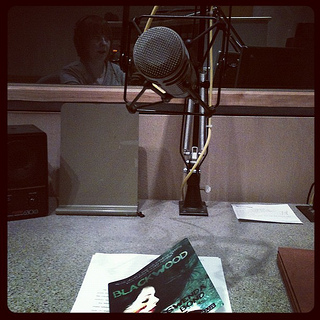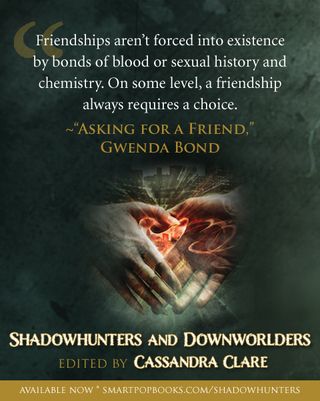I've noticed a few posts here and there about writing speed lately, mostly from people who feel like they go slowly, but sometimes from quote-unquote fast writers too. And these kind of questions have come up at a few events I've done: How long does it take you to write a book? How can I write faster?
I don't know any writers who don't wish they could write faster, though I'm sure there must be some (but they're so zen, they can't be bothered to tell us). In general, everything ends up taking longer to finish than you believe it will. Or wish it would. And this is even after you have some experience and a general idea of how long it takes you to write and revise a book.
But here's what I'm also going to tell you: It doesn't matter.
From an interview with Junot Diaz:
"God, I know, the torment of it. You know, it's weird to be an artist who works really slow. I mean, we have a country that does not like people to take the time. We have a country that even its artists are on the punch-clock. So someone like me really stands out, you know. But you've got to do what you've got to do. And hopefully I can just finish it, forget how long it takes. As long as I can finish the darn thing, I'll be grateful.
…
"But, you know, that process gets lost. No one remembers it. No one – and that's what's the best part about being artist. There's all the sweat you break, all the dust you raise, all the sort of things, all the internal emotional timbre that goes in the work. No one will remember. That's the best part. All that's left is the actual work.
"And, you know, my books, I try to keep the sweat off the books. So people read it, and they're like wow, this feels like this was effortless. That's a great – for me, more than anything, that's the best part of this. My work, that what I put into it doesn't show on the page. That's, like, great."
This isn't news, but it feels like there is a lot of angst on all sides of this issue. No one feels like their process is just right. We are all Goldilocks, ready to experiment with some new method we've read about here or there, with outlining in legos or jumping up and down fifty times in the morning before we start, or using special highlighters. And any of those things might be useful. And, in fact, the amount of time writing any given book takes may well matter for other reasons, especially depending on how big a source of income writing is for the writer and other career-related concerns.
But it doesn't matter to the reader. And it doesn't really matter to anyone except you, the writer (or if you have a deadline and a publisher, you and the publisher).
Maud Newton writing at Tin House recently:
"Other than the slow pace, I’m not drawing comparisons between my writing and Tartt’s or Chee’s — certainly not in ultimate outcome. Nor do I believe that writers who work more quickly are necessarily any less brilliant or less deep than those two are. (Try listing, just for example, the works of Muriel Spark or Graham Greene on a single page.) But writing a novel is an inherently strange exercise. It’s surreal to work for years and years on a project very few people have seen. Sometimes I feel like I’m in the grips of an incredibly intricate and time-consuming delusion. So it’s comforting to know that some of the novelists who inspire me also, of necessity, take their time."
I actually know a fair number of writers who prefer to write manuscripts on spec for this reason, so they can take the time they need. Some of them are "fast" and some are "slow."
I've never been one to shy from a deadline, and I suppose I am what would be considered a relatively fast writer. This does not mean deadlines make me any less nutso than anyone else. Not even a little. There is always that stress, that feeling that this time will be the time you can't manage to pull it off. And the adrenaline when you do. Like many (if not all) of the relatively fast writers I know, I'm something of a workaholic and also usually feel I could/should be working even more. This is something I'm trying my best to get over, because it seems like a terrible burden to never feel like the work you're doing is enough.
So while I may write relatively quickly, I've also gotten much more deliberate–even just in the last year–and that feels like progress. I don't push push push to get to the end and rush a manuscript out the door the way I used to. I wait until it feels ready (enough, anyway; it never feels fully ready). I may be wrong, but at least it's not because of rushing when rushing doesn't matter. (In deadline world, this is not always possible. Alas. Sometimes meeting a timeframe does matter, and so you just have to do it. By hook, crook, or lack of sleep.)
I guess the point of this post is to answer those questions with: Write at your own pace and try not to stress about what pace that is. Fast, slow, whatever works. You're not racing anyone. Unless someone has locked you in a room where it's just you, two typewriters, and a monkey. Then you're racing that monkey to come up with Shakespeare.
(Now, if you're not writing at all…that's a problem. That's not slow, that's stopped. But, even so, there's a time for that too. We all need rests. Burnout is real. So is RSI. But so are deadlines. Don't miss those unless you have a really, really good reason.)
From an interview with Joyce Carol Oates:
"Young writers need to know that writing is work. It’s not something that can be done in a few hours. It takes much longer than that. You have to stay with it. When I look at something I wrote, I remember the trouble I had writing it.
"I don’t write in any kind of fever. Not at all. A story that is 15 pages long is written paragraph by paragraph, scene by scene. I might start with the ending and work my way back to the beginning. It’s more like a mosaic, pieced together. When it’s working right, a story has a certain fluidity. That’s my ideal, to move it along like a stream.
"I always get questions about my schedule and how productive I am. People think I’m productive, but I work so hard and so slowly. Anybody who worked 10 to 12 hours could be as productive, any normal, sane person. I can concentrate for that long because I have to, because I want to get it done."
The important part is not losing sight of the end goal, which is producing the best book you can. It will always take time. It will always take effort. It will probably take all of both you have to give…until you can finally send it on its way for good, and it's time to work on the next one.




